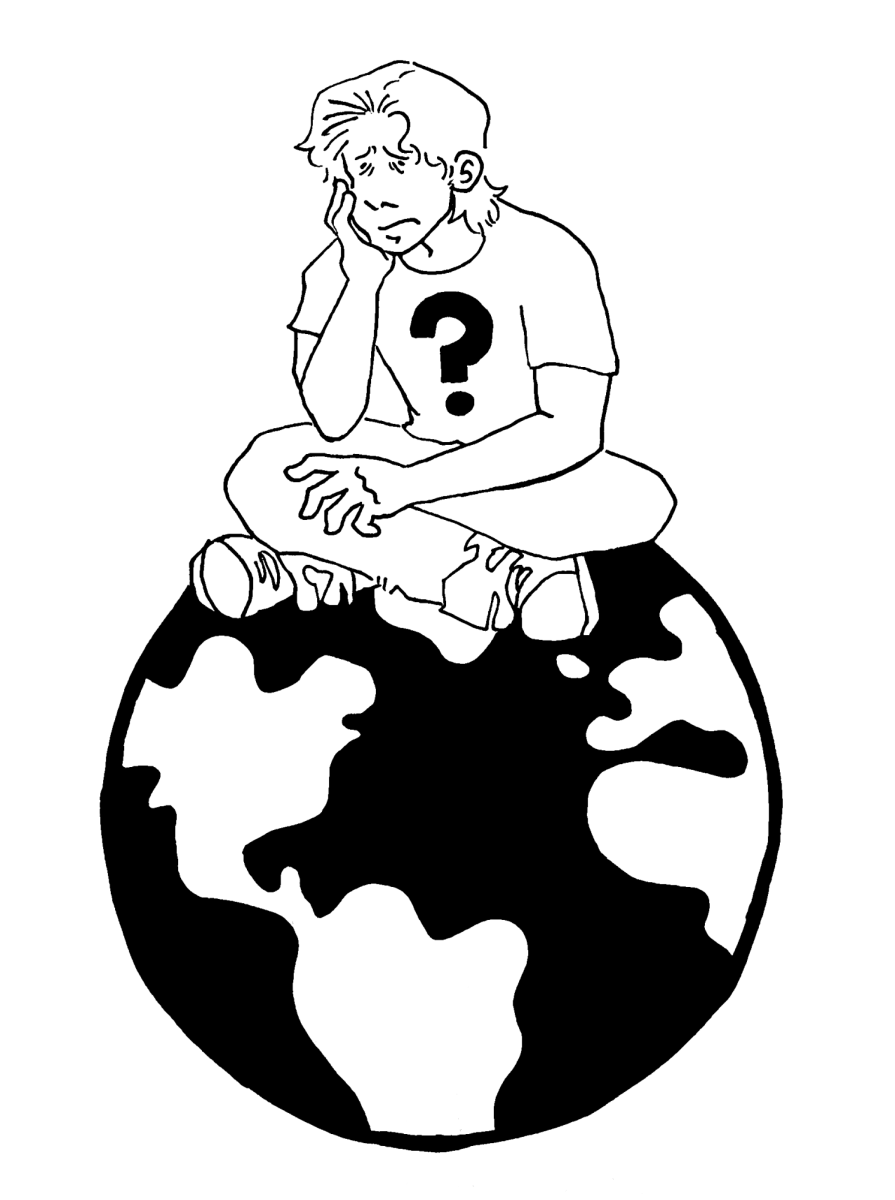When I came to school on November 6, I mostly wasn’t surprised by my experience. Some of my teachers took the day to discuss the election, while others continued with their curriculum business as usual. While some of my peers voiced their anger or excitement, many stayed silent or tuned out, instead opting to play Solitaire or a New York Times word game on their phone.
Honestly, that’s all I felt like doing too; it was easier to disengage than ruminate on my discomfort and anxiety. Because for me, it felt like an April fool’s joke to hear that Donald Trump was elected – not just by the Electoral College, but by the popular vote, too. Another “gotcha” moment, a gut check to the fact that I really am living inside a bubble in this hyper-liberal city isolated from what the rest of the country actually believes.
Yet there was one thing that truly surprised me: with so much built-up anxiety and anticipation, it all felt too anticlimactic.
In the months leading up to November 5, I constantly heard discussion about the criticality of the election – how, regardless of the outcome, there would be major repercussions nationally and globally. Headlines like “How this US election could change the state of the world” and “An Election of Global Consequence” ran in BBC and the Center for Strategic & International Studies, respectively. It was almost like I forgot the inauguration wasn’t until January, with President Biden disappearing into the background of a dramatic political battle.
My mind spun into outlandish scenarios like my brother having to escape his Boston college campus because of post-election riots and protests. I imagined a future much like the world of “The Handmaid’s Tale,” with women’s rights practically erased and the government transformed by Christian Nationalism.
Perhaps I was just feeling a letdown of my stress from the weeks prior. Perhaps I couldn’t feel the full weight of the election in my living room, staring at a TV screen with a map filling up with red and blue as the minutes ticked by. That said, I expected at least something from what Democratic news sources had been telling me for months to come to fruition.
But was I just catastrophizing? Or were we – and are we – really facing the end of American democracy?
On one hand, this isn’t the first time Americans have claimed that we’re at this crucial “tipping point.” The concept of a doomsday event has been a fear possessed by humanity for centuries, whether that be with the Y2K Scare of the year 2000 calendar turn, or the Mayans predicting the destruction of civilization in December 2012. I mean, one in 10 people around the globe (i.e., 800 million people) believed the world would end in 2012 with the end of the Mayan calendar, according to Reuters.
Beyond falsely predicted doomsday events, humanity has faced countless other disastrously climactic moments throughout history. In the 20th and 21st centuries alone, America has gone through two world wars, the invention of nuclear weapons, the women’s suffrage movement, the civil rights movement, the September 11 terrorist attacks, COVID-19, and so on.
Evidently, humanity has had ample opportunities for self-destruction time and time again. However, on every such occasion of potential catastrophe, the world has bounced back. My fear is that this time, America will not.
The 900-page Project 2025 proposes placing the entire federal bureaucracy under presidential control. It outlines eliminating job protection for government employees, eliminating the Department of Education and eliminating federal money for renewable energy.
According to BBC, it will remove terms like “abortion,” “reproductive rights,” and “sexual orientation” from all laws and federal regulations. It suggests that the department of Health and Human Services should “maintain a biblically based, social science-reinforced definition of marriage and family.”
Regardless, the fate of this country is now in the hands of the elected.
Furthermore, at least four of Donald Trump’s nominees for cabinet positions have been accused of sexual assault, and many argue that they are the most unqualified for their positions in history. Trump also announced an $88 billion plan to create internment camps for undocumented immigrants using the Alien Enemies Act of 1798, according to NPR.
With all of that in mind, it’s hard for me to think that we aren’t at a major tipping point in American history. These promises and proposals from our future President are too extreme to believe that nothing will change in the next four years. Something is about to happen. The real question is how much.
When we reach a moment of sizable change in society, there is often the fear that the change or choice we humans make will lead to something irreparable. Thus far, that fear has thankfully been invalidated. Hopefully that fear will continue to be invalidated – but nothing is ever certain when it comes to humanity.
I guess we’ll soon know the extremity of this “tipping point.” In the next four years, we’ll find out whether 49.9% of the country will support or regret the decisions they made on their ballots on November 5, 2024. Maybe this time we truly did do something irreparable.
























